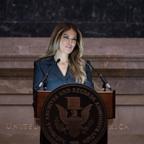Some Parents Aren't Giving Kids Pain Meds Post-Surgery
Sept. 10 -- WEDNESDAY, Sept. 9 (HealthDay News) -- Twenty-five percent of children aren't getting sufficient pain medication from their parents after common surgical procedures, such as having their tonsils out, a new study finds.
It's not clear at this point what the ramifications of the finding are, or the reasons for it.
In a worst-case scenario, kids who don't get enough medication may not be able to swallow enough water, leading to dehydration and even hospitalization, said Dr. Kenneth Goldschneider, director of the division of pain management at Cincinnati Children's Hospital. He was not involved in the new study.
Another expert, Dr. Patricia Cantwell, professor and chief of pediatric critical care medicine at the University of Miami Miller School of Medicine, agreed that many young patients at her facility end up back in the emergency room as a result of unresolved pain issues.
Under-medication could affect large numbers of children. According to background information in the article, published in the October issue of Pediatrics, upwards of 5 million children in the United States undergo surgery each year, with three-quarters having significant pain afterward.
Tonsillectomy and adenoidectomy (to remove the adenoids) are among the most widely performed procedures in younger people.
As hospital stays get shorter and more procedures are done on an outpatient basis, medication is given more often in the home.
"The typical way in which pain medicine is given, I would say, is the surgical team giving the family a prescription, then you go out the door and fill it," said Cantwell.
The study authors, from the University of California, Irvine and the Children's Hospital of Orange County, Calif., looked at 261 children aged 2 to 12 who had undergone one of these two procedures.
On the first day home, parents reported that 86 percent of their children were experiencing "significant overall pain." Despite that, one in four children received minimal pain medication: zero or one medication dose that day.




